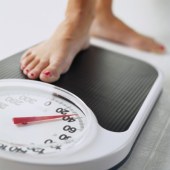Weight
The middle classes from developing countries are more susceptible than western Caucasians to obesity, type 2 diabetes and cardiovascular disease in todays changing environment. New research published in Cell Metabolism from the University of Sydneys NHMRC Clinical Trials Centre, the National Centre for Cell Science, KEM Hospital and the DYP Medical College, Pune, India reveals this may be a result of the nutrition endured by their ancestors.
New research in The FASEB Journal suggests that chronic inflammation from diets deficient in nutrients contribute to weight regardless of the intake of macronutrientsIf you are watching what you…
By Kathryn Doyle (Reuters Health) – People are less likely to resist tasty, unhealthy foods when they’re under stress because the promise of immediate reward trumps longer-term goals to eat well, a Swiss study suggests. Using brain scans, researchers found that circuits in the brain associated with reward are amped up and those linked to self-control are dialed down in participants under stress. The more stressed people felt themselves to be, the stronger the effect. …
A new study suggests that a daily diet that regularly includes spicy food is associated with a lower risk of death, including deaths from specific diseases such as cancer.

Title: How Well Does the Newly Approved Weight-Loss ‘Balloon’ Work?
Category: Health News
Created: 7/29/2015 12:00:00 AM
Last Editorial Review: 7/30/2015 12:00:00 AM
Title: FDA Approves ‘Belly Balloon’ Device for Weight Loss
Category: Health News
Created: 7/29/2015 12:00:00 AM
Last Editorial Review: 7/29/2015 12:00:00 AM
By Kathryn Doyle (Reuters Health) – As dietary sodium levels go up over time, so does the risk for high blood pressure, suggests a new study that followed more than 4,000 adults in Japan for four years. The study did not measure dietary sodium directly, instead using urine samples to estimate levels of sodium consumed, but the results align with other large studies of sodium intake and blood pressure risk, researchers say. “A small amount of salt (less than 3,000 milligrams a day) is necessary for us, but excessive salt is dangerous,” said coauthor Dr. Tomonori Sugiura of Nagoya City University Graduate School of Medical Sciences in Japan.
Compulsive snacking is a major cause of weight gainnbsp;



